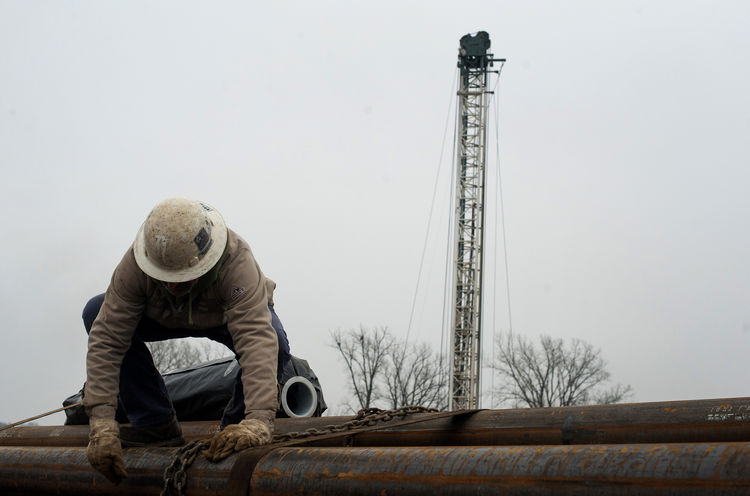- Oil Workers Threaten Nationwide Strike from Dec. 18
Barely 24 hours after oil workers under the aegis of the Independent Petroleum Marketers Association of Nigeria, Lagos State Chapter, suspended the plan to withdraw their services, the Petroleum and Natural Gas Senior Staff Association of Nigeria on Thursday threatened to embark on a nationwide strike.
Last week, IPMAN, Lagos Chapter, accused the Nigerian National Petroleum Corporation of under-supplying its members with petrol, threatening that its members in Lagos and parts of Ogun State might be forced to shut their filling stations by December 11.
PENGASSAN said in a statement that the issuance of a seven-day ultimatum to the Federal Government would culminate in the shutting down of all oil and gas installations, including disruptions to fuel supply and distribution across the country effective December 18, 2017.
The union accused some indigenous oil and gas companies and marginal field operators of unfair labour practices but only disclosed the name of one company in its statement.
It said one of the resolutions in the communiqué issued at the end of its National Executive Council meeting of October 13, 2017 held in Uyo, Akwa Ibom State, was the condemnation of indigenous oil and gas companies and marginal field operators.
PENGASSAN said the oil companies were condemned because of “their anti-labour posture and practices, including the termination of the employment of any worker who has indicated willingness to belong to the union.
“Those who are threatened and compelled to disown the union are then treated as slave workers within their own country,” the union added.
But the union did not say when the termination of employment was carried out and how many workers were laid off.
PENGASSAN claimed that it had explored all options without getting the necessary understanding, adding that relevant authorities of government had failed to caution the recalcitrant organisations, especially Neconde.
It said it would embark on the nationwide strike on December 18 if the Federal Government failed to direct the companies to “recall our sacked members as the only option to address this injustice and lawlessness.”
PENGASSAN appealed to all Nigerians to show understanding and to use the window of the notice to stockpile adequate quantity of Premium Motor Spirit and other petroleum products that would last them during the upcoming festive period as the strike would be indefinite.

 Forex3 weeks ago
Forex3 weeks ago


 Naira2 weeks ago
Naira2 weeks ago
 Billionaire Watch2 weeks ago
Billionaire Watch2 weeks ago




 Naira2 weeks ago
Naira2 weeks ago




 Naira4 weeks ago
Naira4 weeks ago




 Naira2 weeks ago
Naira2 weeks ago


 Naira1 week ago
Naira1 week ago
 Banking Sector4 weeks ago
Banking Sector4 weeks ago






















